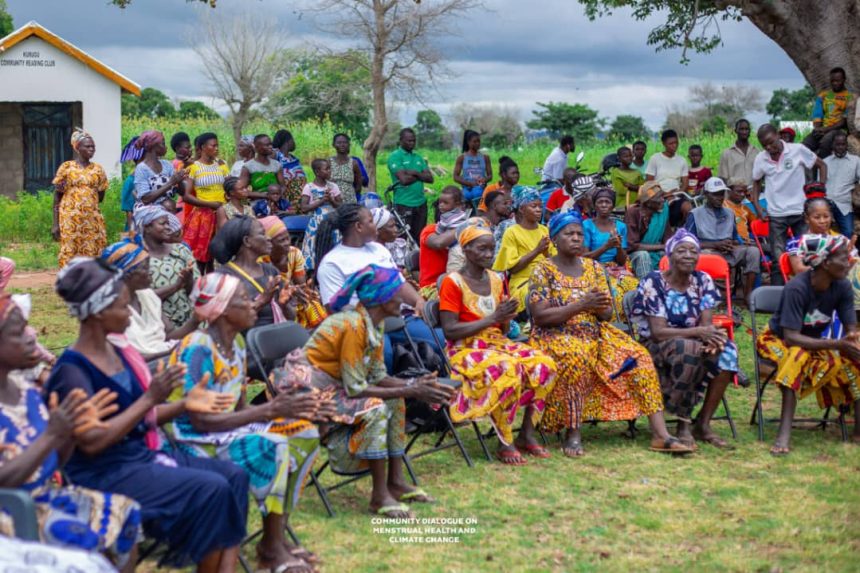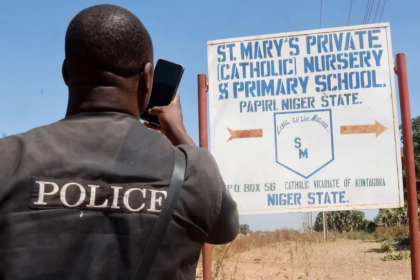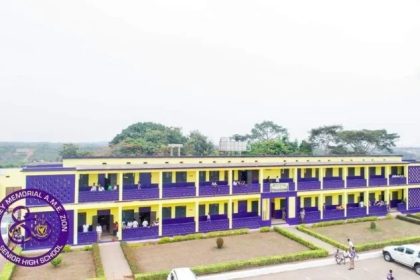The Green Africa Youth Organization (GAYO), a non-government organisation (NGO), has held a community dialogue on menstrual health and climate change adaptation at Kurugu in the Kassena-Nankana West District.
The dialogue was aimed to sensitise community members on the need to adhere to proper menstrual hygiene and the negative effects of climate change on the environment.
It was on the theme: “Breaking menstrual stigma and building community resilience to climate change,” and attracted parents, traditional leaders, youth groups among other stakeholders.
Speakers at the forum who led discussions on menstruation and climate change, stressed the need for parents and guardians to engage in open conversations about menstruation with their female children, and how climate change adaptation could strengthen family and community resilience.
Pognaba Freda Akentira Nyaaba, the Queen Mother of Gunwoko, a community in the district, urged parents and guardians to openly speak about menstruation.
She was speaking on the topic “Breaking menstrual stigma and community support for women.”
She said, “When we speak openly about menstruation, we boost the confidence levels of our daughters and protect their future. Breaking the silence on menstrual hygiene starts at home.”
Madam Jennifer Anapoka Agamolga, a youth leader, identified menstrual stigma as a challenge in some communities, and called for collaborative efforts among stakeholders to address the challenge.
Mr Desmond Alugnoa, a Co-founder of the GAYO, in an interview with the Ghana News Agency (GNA) after the programme, said the NGO’s activities were across the country, but noted that it focused mainly on water and climate change adaptation in the Upper East Region.
He said the organization had over the years constructed boreholes in communities without portable drinking water, supported community members in food crop production, and further built the capacities of young girls in rural communities to stay in school.
To help improve enrolment levels and check the rate of school dropouts owning to the lack of sanitary pads, Mr Alugnoa said the NGO constructed a facility at Kandiga, a community in the District about three years ago to produce hygienic pads for pupils.
“The facility started production last year. It basically produces sanitary pads to serve the community, especially young girls in schools whose parents cannot afford the imported sanitary pads,” Mr Alugnoa said.
According to him, the initiative was helpful adding that, “A lot of the teachers have confirmed that the girls now stay in school, and the enrolment levels have increased.”
The Co-founder acknowledged and expressed gratitude to their partners, management of the Regional Health Directorate for reviewing the menstrual hygiene materials used to educate the young girls and thanked opinion leaders and community members for their support.
Madam Khadijah Azumah Braimah, the Community Engagement Coordinator for the NGO, under the Water for Adaptation and Period Poverty Project, said the organization decided to extend the dialogue to the community after several engagements with pupils in the community on menstrual hygiene.
She noted that the turnout for the programme despite a downpour, indicated that the community was “ready to break taboos and work together to tackle the twin challenges of menstrual stigma and climate change.”
Mr Adamu Asaah, the Assembly Member for the Kurugu Electoral Area, said: “The GAYO is a blessing to this community and beyond. For the past three years, they have been in the communities educating young girls on menstrual hygiene.”
He said some parents and guardians may not know how to assist their young girls hygienically during their menstrual periods, and that the dialogue was educative, and highlighted the need for parents and guardians to support their girls undergo the natural process.
GNA






